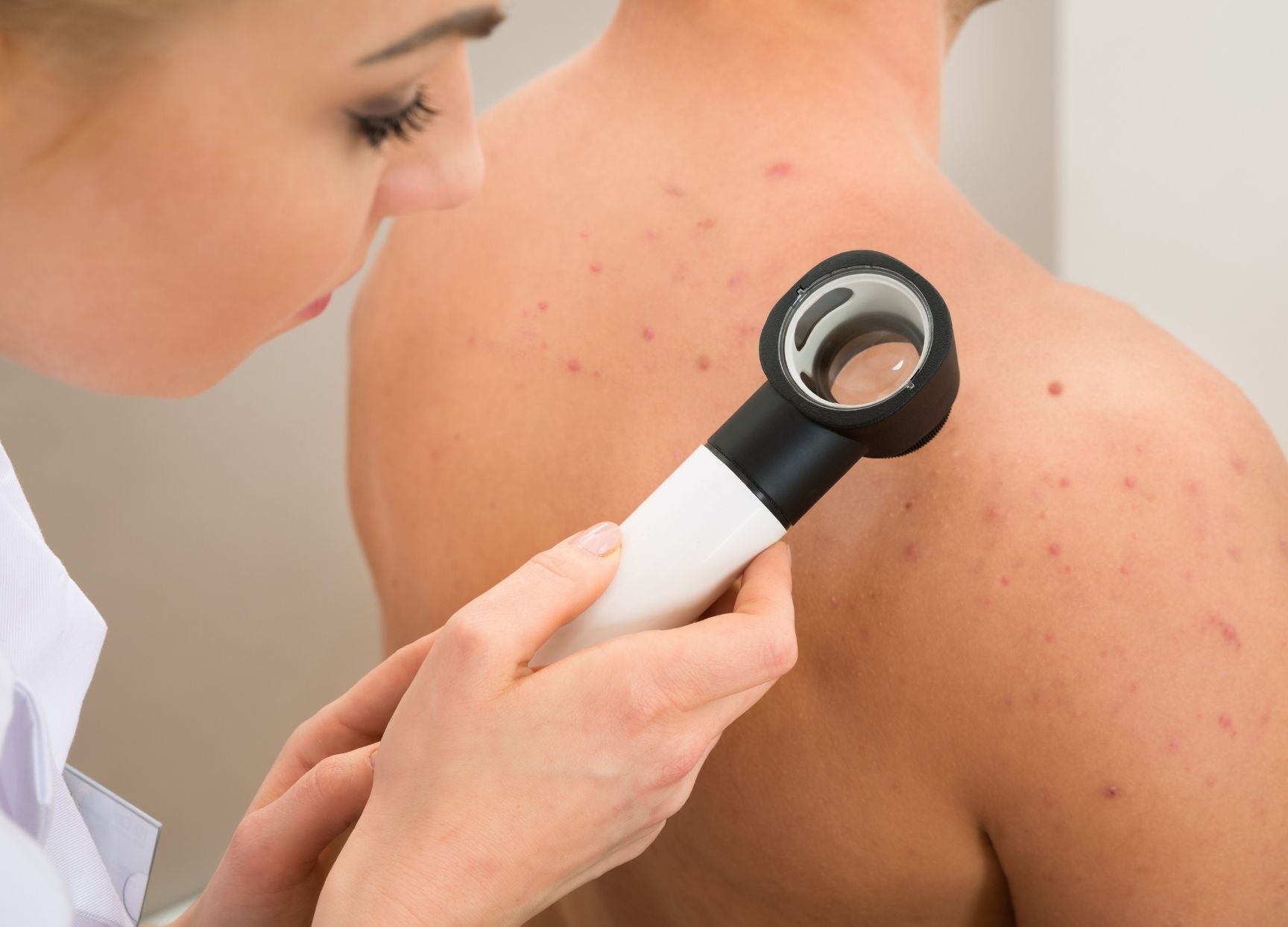This service is also available to paediatric patients aged 0+
Mole Check
Then they will examine all your skin and use a dermatoscope to look at the networks in your moles more closely. They will determine if your moles are all fine and if any might need further monitoring or removal.

What does a mole check appointment involve?
A mole check appointment at OneWelbeck Skin Health & Allergy involves seeing a dermatologist who will take a sun-exposure history, and look at your risk factors for skin cancer. Then they will examine all your skin and use a dermatoscope (magnifying light) to look at the networks in your moles more closely. They will determine if your moles are all fine and if any might need further monitoring or removal.
How frequently should I have a mole check?
Your risk factors for skin cancer and the type of moles you have will determine how often you need your moles checked – this can vary from every 6 months to yearly in high-risk patients, to no regular review needed by other patients.
Should I only make an appointment if I have a suspicious-looking mole?
You can of course make an appointment if you are worried about a particular mole, but you may also benefit from a full mole check by the dermatologist if you have risk factors which include:
- having fair skin and burning easily in the sun
- living in a very sunny place for more than 1 year
- having a family history of skin cancer or abnormal mole
- working outdoors
- having outdoor hobbies where you might be exposed to a lot of sunshine
- taking immunosuppressive medications
- having illnesses that reduce your immune system
- if you have used sunbeds in the past
- if you have previously been diagnosed with sun-damage or skin cancer
What happens if the consultant finds any abnormalities?
A consultant may arrange to take a biopsy (a sample) or remove the entire mole or lesion to send it off for a histology analysis to find out if the mole is benign (harmless), atypical, dysplastic (abnormal), or malignant (cancerous).
Are there any other mole check options?
We are proud to offer the most advanced form of mole mapping available in the UK. Designed specifically for dermatology, the VECTRA WB360 whole body 3D imaging system captures the entire skin surface in macro quality resolution with a single capture. The fully integrated software allows us to map and monitor pigmented lesions and distributed diseases of the skin.
To find out more, visit our mole mapping page.
Paediatrics
We are able to offer appointments to paediatric patients aged 0+. For full information on our paediatrics service, please visit our main Paediatrics page.
Book a consultation
Mar 2026
Currently selected day
Available consultations
Mole check specialists
Our consultants, who are all either heads of service at London teaching hospitals, or have played major roles in clinical innovation, employ their collective expertise, knowledge and deep experience to deliver the best care possible.

